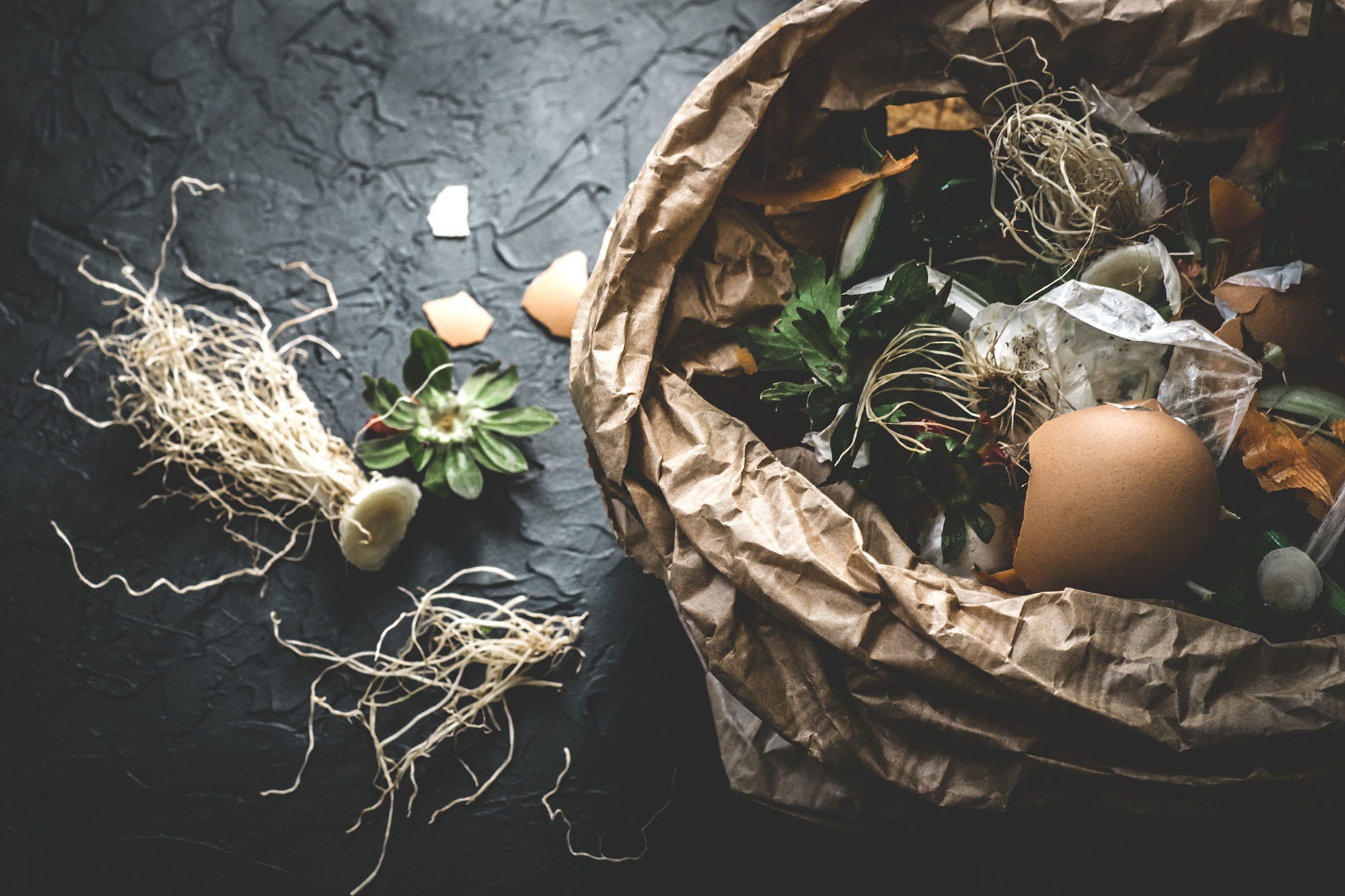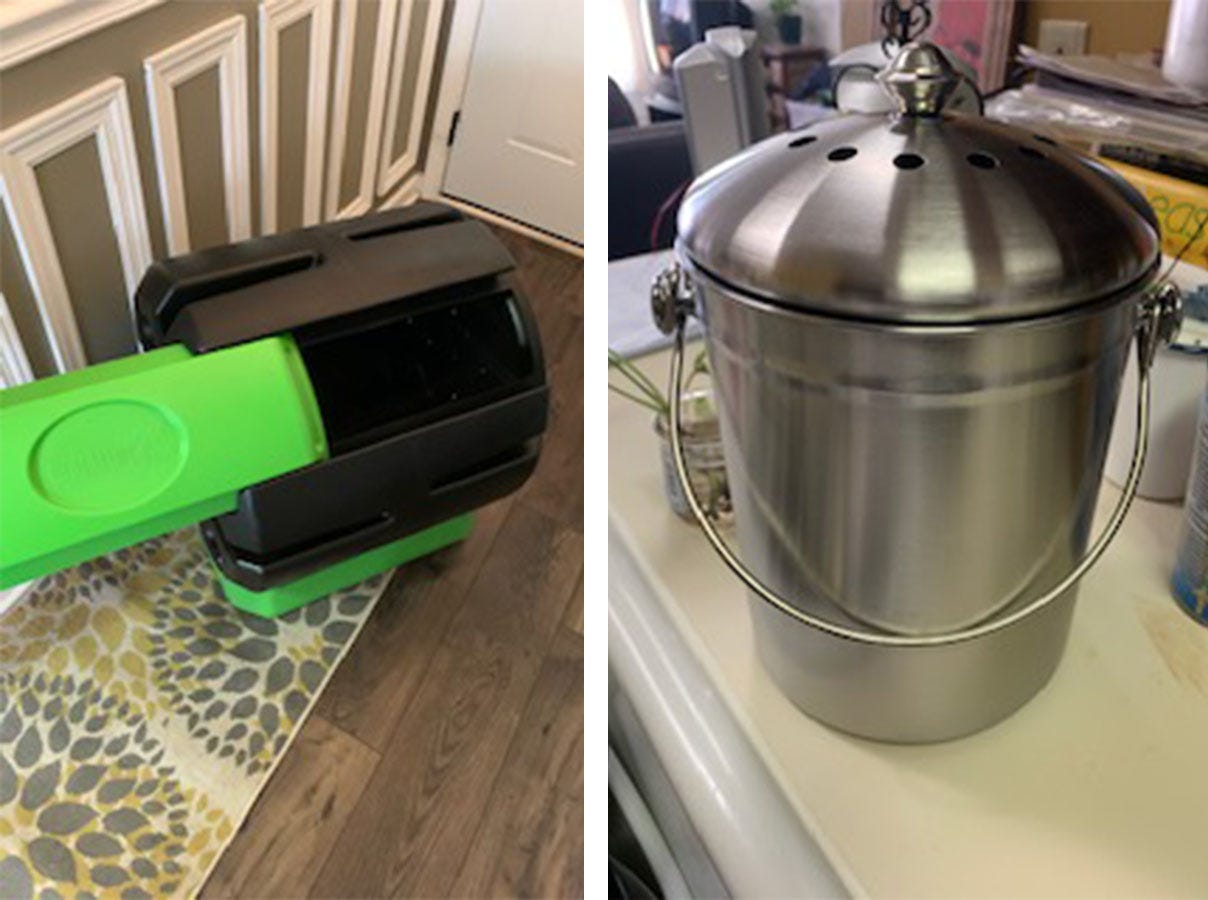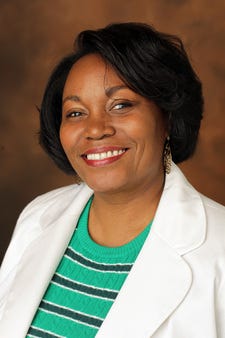Outside Our Service Area
Waste Not Want Not: A Beginner’s Composting Series
This series focuses on our commitment to sustainability and ecotheology by offering tips and tools to live out what we say we believe. Amy E. Steele (she/her/hers), Assistant Dean for Student Affairs and Community Life at Vanderbilt Divinity School (VDS) invites us in to her journey toward zero waste — another commitment we have made as a school.

I sat down to write the local composting company the week of December 9 and the friendly message I received in return was: you “are outside of our service area.”
I didn’t want to start with sarcasm and frustration, here first blog out, but right now, this company is the only residential pick-up service in this part of the state. It was enthusiastically recommended by a colleague who lives on the same side of town as me, and enthusiasm is contagious. I admit it. I was deciding in favor of feasibility. I am a single black professional mom, who could use a little help thinking through not just how to compost, but what to do with it once it’s…like, done.
I do live in a decidedly more international, more brown, more black area. But composting and environmental stewardship are long held traditions with people who farmed and share-cropped for generations. There are long histories of black folks in particular, black southerners who carried oral traditions around planting and curating good soil. So, composting does not seem far from me like I’m adopting practices from the “other side” of town. No, I am returning to rooted practices (pun intended) that travel back past oceans. Melanie Harris’ book Ecowomanism: African American Women and Earth-Honoring Faiths is just one of many that try to capture some of these practices and the eco-theological beliefs behind them. Anyway, my passion is embedded in the southern black woman’s colloquialism, “waste not, want not” meaning pay attention to how you use what you use because the less you waste, the less you will lack.

Somebody reading this is going to give zero frittatas that some well-meaning black woman working for a fancy institution can’t get composting service at her home. “Boo hoo,” they’ll say. Figure it out and quit crying. You don’t have to say it. That’s exactly what I did. I bought an outdoor composter and in-door stainless can with a lid that has a carbon filter to keep the smells at bay. After all the research, comparisons, attention to feasibility, etc. my new tools arrived just before New Year’s Day. I have put them to use, and I plan to curate the best soil this side of Nolensville Road and grow fresh food and flowers (in between everything else)! I’m attaching pictures and video in this blog so you can see the beginning stages. If you are as geeked as I am, good luck with your journey! Maybe we can learn together.

Amy E. Steele began serving as the assistant dean for student life at Vanderbilt Divinity School in the summer of 2011. She is an ordained Baptist minister who earned two degrees from Vanderbilt University (2012 and 2000 respectively), the Doctor of Philosophy in Religion (Ethics and Society) and the Master of Divinity with a certificate in Black Church Studies. Dean Steele’s doctoral dissertation is titled, “The Mystical Aesthetic: Howard Thurman and the Art of Meaning.” She has scholarly interests in the areas of social ethics, spirituality, philosophical hermeneutics, homiletics, aesthetics, and pragmatic theology. Prior to her employment at the Divinity School, she served as the project director for the Sustaining Pastoral Excellence, a Lilly Endowment, Inc. grant, at American Baptist College where she had charge of a $3.9 million dollar budget.
As assistant dean for student life she is responsible for community care, worship and spiritual formation, and advising student government. She is also challenged to provide individualized care by offering confidential space for students to converse about vocation, lifecycle changes, and the sphere of their educational experience. In these meetings Dean Steele assists students in identifying resources to assist their varying transitions. She is also the point person for student emergencies. Students are invited to make use of the programming and professional development opportunities that the assistant dean’s office provides.